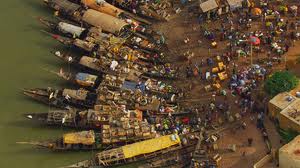If there is enough food for everyone, why does everyone not have enough food?
I have just returned from a great day at the MADE in Europe Enough Food for Everyone #IF campaign training day. If you haven't heard of this organisation or the campaign yet, here's a brief summary of both:
MADE in Europe:
The planet is being destroyed by irresponsible and selfish living and it's the world's poorest who are first to feel the effects of the changing climate. This challenge will take more than just our money. MADE in Europe is a Muslim-led movement of young people who want to see our community leading the fight against global poverty and injustice. Our response is rooted in the Islamic traditions of social action, justice and environmental stewardship. It's about being smart, ethical and green in the way we live. Our mission is to inspire and enable a grassroots European Muslim youth movement of faith in action for tackling global poverty and injustice through volunteering, campaigning and education.
IF:
Hunger is the great scandal of our age. Nearly one billion people go to bed hungry every night and two million children die from malnutrition every year. Islam calls on us to stand up for justice and feed the hungry – yet despite the millions of pounds we give every year to tackle extreme hunger, more people die around the world from hunger than from tuberculosis, malaria and AIDS combined. The time has come to move beyond charity and start tackling the root causes of global hunger.
MADE in Europe have joined with over 100 organisations to launch the Enough Food for Everyone IF campaign – a historic campaign which seeks to bring global hunger to the top of the agenda in 2013. It consists of a series of campaign asks to combat global hunger based around the issues of Transparency, Aid/Investment, Tax and Land.
Having been involved with MADE for a few years now, I am very excited at the lead role that the organisation has been able to take, and particularly its role as a Muslim organisation within the coalition. This is a unique opportunity for the Muslim community to work with organisations across the board on a subject which we are all in agreement about- Global Hunger today is a scandal.
The main work us campaigners are hoping to achieve in the coming month leading up to the 20th March UK Budget moment is to lobby our MPs and George Osborne to ensure that they know we want them on board with this campaign. That we want them to stick the 0.7% commitment to Aid within our budget, that we want them to include financial disclosure of tax avoidance schemes within the Finance Bill in 2013.
With the UK leading the G8 this year, our Prime Minister and our government can set an example and take the lead on this issue and make sure we see the beginning of the end of World Hunger this year. The Muslim community are at the centre of this. Our Faith stands for Justice,we should be taking a stand on these issues.
"He who sleeps on a full stomach whilst his neighbour goes hungry is not one of us" Prophet Muhammad (pbuh)
In the next month, I hope we see Muslim communities being mobilised, talking to each other, talking to their MPs, writing to George Osborne, mosques taking action and exposing the scandal of World Hunger. The MADE campaign training in London is just the frst of many that will take place around the UK, alongside campaign stunts and events. Make sure you take part in your area: be the one to lead the change.
"Allah does not change the condition of a people unless they change themselves” Qur’an 13:11
It may take time but this is the beginning of a very important movement for change and it is our duty to be part of it.








